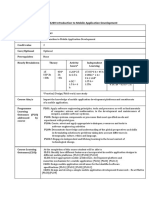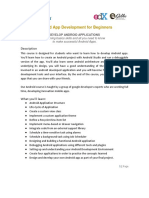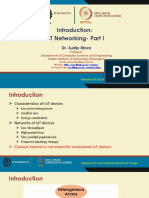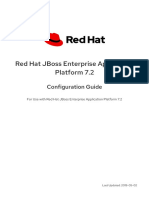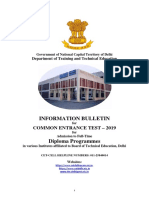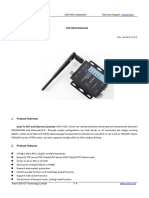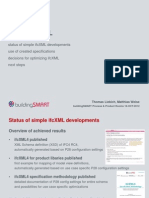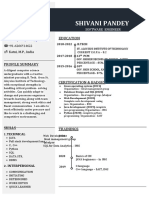International Islamic University, Islamabad
Faculty of Computing
Department of Computer Science
Course Information
Course Code & Course Title:
Lab: yes
IT-332 Mobile Application Development Credit hrs: 3
Prerequisites For the Course:
Instructor: Ms. Oswa Maryam E-mail:
oswa.maryam@gmail..com
Text Book:
None
Reference Book:
1. Android Studio 3.3 Development Essentials - Android 9 Edition: Developing Android 9
Apps Using Android Studio 3.3, Java and Android Jetpack
2. Android Studio IDE Quick Reference: A Pocket Guide to Android Studio Development
by Ted Hagos, Released July 2019
Course Objectives:
• Learn to implement core functionalities such as user input handling, data storage, and
network communication.
• Acquire skills in integrating APIs and external libraries into mobile applications
Course Learning Outcomes (CLOs):
Domain Aligned
CLOs
Level PLOs
1 Cognitive
CLO1 Design and develop mobile applications using Android Cognitive PLO1
Studio and Java, demonstrating proficiency in the core (Understanding)
concepts and tools of mobile app development.
CLO2 Apply knowledge acquired to implement various Cognitive PLO2
functionalities within mobile applications, such as user (Applying)
input handling, data storage, network communication,
and integration of APIs and libraries.
� CLO3 Deploying and distributing their mobile applications on Cognitive PLO4
the Google Play Store, understanding the process and (Applying)
requirements for making their apps available to a wider
audience.
Course Outline
The undergraduate course on mobile application development using Android Studio and Java is
designed to equip students with the fundamental skills needed to create robust and user-friendly
mobile applications for the Android platform. Through hands-on projects and practical exercises,
students will learn key concepts, including UI design, Firebase, and application deployment. This
course provides a solid foundation for aspiring developers to excel in the dynamic world of mobile
app development.
Tentative lecture plan
Contact
No List of Topics
Hours
Introduction to Android Eco-system
• Introduction to Android OS
1 3
• Introduction to Android Studio (Installation, Emulator, etc.,)
• Languages support in Android Studio (Java, Kotlin)
Basics
• Android OS Layers
• OHA
• API Levels
2 • APK, Delvik Virtual Machine 4
• Gradle Build System
• Android Studio Ecosystem (Java, Res, Plugin Installation,
Emulator, AndroidManifest.xml, Permissions, etc.,)
• Android Components (Activity, Services, Content Providers,
Broadcast Receivers, Widget, Containers, and Resources)
UI Components
• Working with Activity (Activity front and back-end, Orientation,
Lifecycle)
3 3.5
• Changing App Icon
• Layout Managers (Linear, Relative, Constraint, etc.,)
• Resources (values, strings, colors)
� UI Widgets
• Android UI Widgets (TextView, EditText, Button, Toast, Snackbar,
CheckBox, RadioButton, Spinner, AlertDialog,
4 AutoCompleteTextView, RatingBar, Date and Time Picker, 4.5
ProgressBar, ImageView)
• ListView, Custom ListView
• Menus
Intents •
5 3
Implicit
• Explicit
SharedPreferences
6 3
• Working with SharedPreferences
Services
7 3
• Working with Services
Firebase
• Firebase Authentication 6
• Firebase Firestore
10 Mid Term Examination 2
Total 32
Grading and General Course Policies:
• Assignments and/or grade percentages are subject to change. The breakdown is as follows:
Quizzes 10%
Assignments 10%
Mid Term 20%
Project 10%
Final 50%
Total 100%
• Note: The instructor reserves the right to change the above-mentioned criteria without prior
notice.
• Cheating and copying will NOT be tolerated. Zero credit for the person providing help and
getting help.
• You are responsible for timely and functional delivery of your assignment at the beginning of
class on submission date. Late assignments will result in zero marks.
• Assignments/worksheets will be graded on the basis of adhering to requirements, robustness,
analytical reasoning/explanation, documentation, user-interface and above all originality.
• No makeup quiz/exam/assignment will be taken.
• Students are responsible to ensure that their attendance does not fall below 75%.
































